The Varieties of Religious Experience
On campus, the discourse on diversity often omits discussion of religion. As a way to address this omission, Inaugural Thought Leadership Fellow Matthew Blake ’17 embarked on this narrative journalistic project to highlight students’ unique religious experiences at Middlebury, particularly exploring how religion shapes their understanding of identity, culture, and purpose.
Importantly, these nine narratives interrogate mainstream assumptions and stereotypes associated with particular religions as a way to dismantle simplified perceptions of religious people. Given the political climate, these narratives are of paramount importance to campus and the country as we work toward greater understanding and acceptance of difference.
Thank you to Sue Halpern, the Scott Center for Spiritual and Religious Life, Valerie Costello, and Dena Simmons.
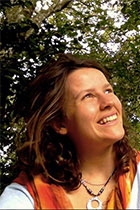
Heather Cox ’19
“Church should not be the cherry on top of your weekend, something you just do for your spiritual quota for the week and then you are done… Your experience during church should inform the way you act in your daily life, and I think if you are going about that properly you should feel compelled to act with compassion and with love for people who are different from you.”
Heather Cox ’19

Elana Schrager ’17
“I would always take off my shoes and carry a book in my tallit bag once I got bat mitzvahed … and the rabbi would always stop by and joke about how my shoes were off and what book I was reading.”
Elana Schrager ’17

Bernardo Andrade ’18
“I didn’t have exactly a single moment of conversion that made me suddenly accept Christianity, but little by little what I saw happening was that philosophy, which I thought would give me the arguments for atheism, gradually was giving me a longing for God.”
Bernardo Andrade ’18

Akhila Khanna ’17
“The dance practice wasn’t just a physical training, but it was a kind of mental training as well … it kind of makes you stronger because you are a little closer to what your ancestors had … and, to be able to access that ancestral tradition in the span of one hour, that has some spiritual benefit to it.”
Akhila Khanna ’17
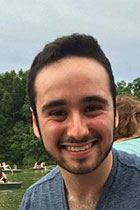
Josh Goldenberg ’18
“One of the teachings of Judaism is Tikkun Olam, or repairing the world, and there is this story that when God created the world he sent these lights off in different boats and some of the lights were lost and so part of our job is to help bring some of those lights back into the world.”
Josh Goldenberg ’18

Naing Thant Phyo ’18
“If you asked me 10 years ago if I would have a small picture and statue of the Buddha in my college dorm, I would probably have never thought so, but I do now and that’s mostly because it was given to me by my parents, so I see it as something reminding me of home.”
Naing Thant Phyo ’18
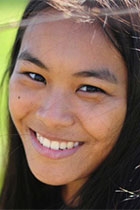
Karma Lama ’17
“Community is so important … You do what’s best for everyone, you don’t do things that are easy or good for you and I think that is something I find to be a really beautiful part of being a Tibetan Buddhist.”
Karma Lama ’17
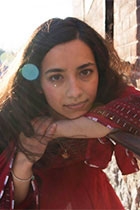
Maryam Mahboob ’18
“It is a set of practices, but more than anything it is the personal connection you have with God and how you conduct yourself with other people, and I think that says more about a person’s character than outward gestures that express your faith.”
Maryam Mahboob ’18
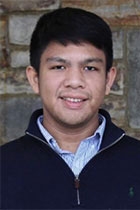
Garda Ramadhito ’19
“My grandfather passed away in October and I read the Sūrah Yāʾ-Sīn, a verse from the Koran that Muslims usually recite when someone has passed away… For the first time it was cathartic because I could express my love for my Grandpa by reciting that verse.”

